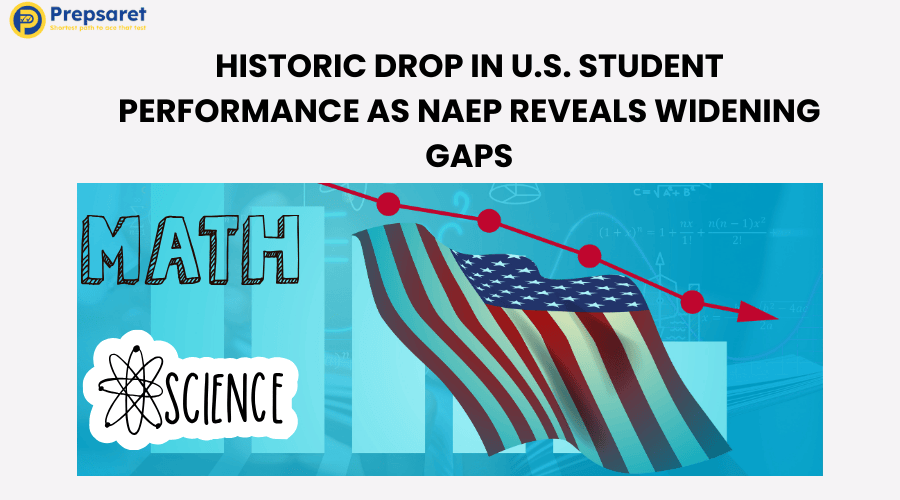Key Takeaways
- Nation’s Report Card shows steep declines in 12th grade math and reading, and 8th grade science.
- Nearly half of high school seniors are performing below basic benchmarks in core skills.
- Secretary Linda McMahon calls for state-led education reforms, while experts point to absenteeism, pandemic effects, and instructional shifts.
- Widening achievement gaps highlight challenges for both students and teachers.
- Findings highlight the need for strong preparation for both high school equivalency learners and future teachers.
The 2024 National Assessment of Educational Progress (NAEP), also known as the Nation’s Report Card, reveals significant drops in student achievement across the United States. Twelfth-grade reading and math scores fell to their lowest levels in more than two decades, while eighth-grade science results also declined, wiping out years of progress.
Troubling Trends in Reading, Math, and Science
The National Center for Education Statistics reported that only 35% of seniors reached the preparedness benchmark in reading and 33% in math. More students than ever before scored below NAEP’s “basic” threshold, raising concerns about whether graduates are equipped for college, careers, or the military.
For many who turn to alternatives like the GED exam, the results underline just how critical it is to master foundational skills in literacy and numeracy.
“These results should galvanize all of us to take concerted, focused action to accelerate student learning,” said Matthew Soldner, NCES acting commissioner. He noted that chronic absenteeism has also worsened—31% of seniors reported missing three or more days in a single month, compared with 26% in 2019.
Find Out: Can You Join The Military With A GED?
McMahon Calls for State Control
Education Secretary Linda McMahon described the scores as evidence of a “devastating trend.” She argued that spending alone is not the solution. “Success isn’t about how much money we spend, but who controls the money and where that money is invested,” McMahon said, reiterating her commitment to return more decision-making power to states.
Wider Gaps and Broader Concerns
Experts warn that the declines reflect more than pandemic disruptions. Changes in reading instruction, fewer full-length texts in classrooms, and the loss of specialized STEM initiatives have contributed.
Lesley Muldoon, executive director of the National Assessment Governing Board, said seniors are leaving school “with fewer skills and less knowledge in core academics than their predecessors a decade ago.”
For educators, the findings also carry weight. Future teachers preparing for licensure through the Praxis exams will need to understand how to support struggling students, close achievement gaps, and adapt instruction to rebuild learning stamina.
Also in the news:

